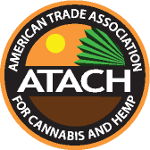1. Introductory Summary
Following the 2018 Farm Bill, which legalized hemp with less than 0.3% Delta-9 THC, Nevada integrated hemp intoxicants, including synthetic cannabinoids like Delta-8 and Delta-10 THC, into its cannabis regulatory system. Synthetic THC products are subject to the same oversight, safety, and quality standards as traditional cannabis products. This framework requires controlled access, product testing, and compliance with state regulations for safety.
2. State’s Classification Regarding Hemp Intoxicants
Nevada regulates intoxicating hemp-derived products, including synthetic cannabinoids, under its cannabis framework. The Cannabis Compliance Board (CCB) oversees synthetic THC products, enforcing regulations similar to those for traditional cannabis, including licensing, safety protocols, and mandatory testing.
3. Regulation or Prohibition of Synthetic THC, Including Delta-8 and Delta-10 THC
Nevada permits synthetic cannabinoids, such as Delta-8 and Delta-10 THC, only within its regulated cannabis framework. These products must be sold exclusively through licensed cannabis dispensaries and meet all safety and quality standards set by the state. Production and sale outside of this regulated framework are prohibited.
4. THC Potency Limits per Serving or Package
Nevada enforces THC potency limits for synthetic THC products in line with its cannabis regulations. For edibles, THC content is capped at 10 mg per serving and 100 mg per package. These limits apply to all THC-containing products regulated by Nevada’s cannabis framework, maintaining consistency across both cannabis and hemp-derived intoxicants.
5. Public Health Measures
Nevada mandates several public health protocols for synthetic cannabinoids under its cannabis regulatory framework:
- Age Restrictions: Consumers must be 21 or older to purchase synthetic THC products.
- Packaging and Labeling: Child-resistant packaging and labeling of THC content, serving sizes, and health warnings are required.
- Advertising Restrictions: Advertising must not target minors or use elements appealing to children.
- Product Safety Testing: Synthetic THC products undergo mandatory testing for potency, contaminants, and purity to meet state standards.
- Recalls: The CCB has protocols for product recalls if a synthetic THC product is deemed unsafe or non-compliant with state standards.
6. Enforcement Mechanisms Against Unregulated Sales
The CCB enforces Nevada’s synthetic cannabinoid regulations by monitoring licensed cannabis dispensaries and conducting compliance inspections. Unauthorized sales of synthetic cannabinoids outside the regulated market are penalized, including fines and potential criminal charges.
7. Advertising and Marketing Restrictions
Nevada imposes advertising restrictions on synthetic THC products to prevent targeting minors. Guidelines prohibit packaging or marketing that appeals to children, and all advertising must be truthful, avoiding misleading claims about product safety or efficacy.
8. Responsible State Agencies
The Nevada Cannabis Compliance Board (CCB) is responsible for enforcing synthetic THC compliance, regulating licensing, and overseeing product testing.
